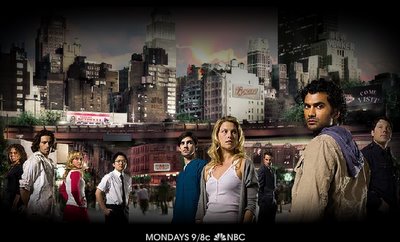 It’s no secret that this blog thinks comic-book films and television shows make for great fodder in bringing God-talk in open spaces. Now we’re adding another one to our list: NBC’s Heroes.
It’s no secret that this blog thinks comic-book films and television shows make for great fodder in bringing God-talk in open spaces. Now we’re adding another one to our list: NBC’s Heroes.The drama (four episodes so far—three of which you can catch back to back Sunday night, Oct. 22) chronicles the lives of about half a dozen ordinary people—most of whom are strangers from across the United States but are quickly beginning to cross paths—who discover they possess extraordinary powers. A young geneticist from India, Mohinder Suresh, is seeking them out, drawn in by the murder of his also-geneticist father, who theorized people with super powers lived among us. The burgeoning heroes are also being sought out by a super-villian serial killer as well as by a shadowy organization headed by horned-rimmed-glasses Mr. Bennet—one of which is probably responsible for the murder of the Mohinder’s father.
One of the things about the series that’s currently got me hooked is the struggles the will-they-or-won’t-they-be-heroes characters experience as they discover their powers and the choices they make (or avoid). Ultimately, being a hero in the comic-verse changes your life. Your life is no longer your own. And this new life is about taking on a new purpose, one that is greatly focused on denying your own needs and focusing on helping others—and this makes for a good illustration in understanding the impact of the call Jesus makes.
 For some of the characters, this call to a new way of life is down-right horrifying and to be avoided. For 17-year old cheerleader Claire Bennet and New York politician Nathan Petrelli, their new powers and the call they represent threatens the ways of life they deeply desire. In other words, they have something to lose. Claire (whose can regenerate from any injury—and we’ve seen some doozies) just wants her old life back. For her, the new powers she exhibits separate her from others, make
For some of the characters, this call to a new way of life is down-right horrifying and to be avoided. For 17-year old cheerleader Claire Bennet and New York politician Nathan Petrelli, their new powers and the call they represent threatens the ways of life they deeply desire. In other words, they have something to lose. Claire (whose can regenerate from any injury—and we’ve seen some doozies) just wants her old life back. For her, the new powers she exhibits separate her from others, make 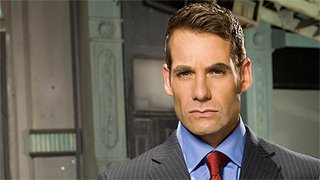 her different and mean the end of life as she knows it. (The writers heighten this by tapping into something most of us can identify with: for a teenager, being different is the one thing you don’t want to be.) Then there’s Nathan. He believes that if his new power of flight is discovered by the public, it will keep him from the political power he truly desires. His new super power—and it’s call to a new purpose—is to be hidden at all costs. But neither Claire nor the Nathan will be able to avoid the choice on how to use (or not use) their power for long. Even now, the choices
her different and mean the end of life as she knows it. (The writers heighten this by tapping into something most of us can identify with: for a teenager, being different is the one thing you don’t want to be.) Then there’s Nathan. He believes that if his new power of flight is discovered by the public, it will keep him from the political power he truly desires. His new super power—and it’s call to a new purpose—is to be hidden at all costs. But neither Claire nor the Nathan will be able to avoid the choice on how to use (or not use) their power for long. Even now, the choices 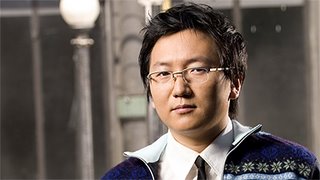 they are making are walking them closer to the fork in the road which will lead either to the life of good or one of evil. There is little middle ground in the comic-verse—and whatever middle ground there is eventually erodes. (And, if you think about it, that’s a fairly biblical worldview.)
they are making are walking them closer to the fork in the road which will lead either to the life of good or one of evil. There is little middle ground in the comic-verse—and whatever middle ground there is eventually erodes. (And, if you think about it, that’s a fairly biblical worldview.)For other characters, this call to a new life—while complicated—is exhillerating. Even before their powers surfaced, Japanese office worker Hiro
 Nakamura (who has the power to teleport and manipulate time), LA police officer Matt Parkman (telepathy), and Nathan’s brother and nurse Peter Petrelli (who can mimic the power of hereos who are in close proximity) already sensed that life held a higher calling and purpose. They longed to be a part of that. They wanted their lives to mean something more. As confusing and complicated as their powers make their lives, they are already walking down the road which will make them heroes (albeit with some
Nakamura (who has the power to teleport and manipulate time), LA police officer Matt Parkman (telepathy), and Nathan’s brother and nurse Peter Petrelli (who can mimic the power of hereos who are in close proximity) already sensed that life held a higher calling and purpose. They longed to be a part of that. They wanted their lives to mean something more. As confusing and complicated as their powers make their lives, they are already walking down the road which will make them heroes (albeit with some 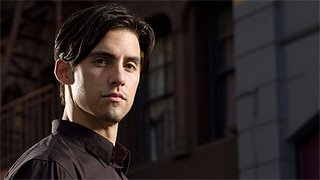 detours and mistakes along the way). Not that a hero’s life will be less painful or absent of suffering. In fact, with Future Hiro’s brief appearance last episode, we already get a sense that there will be dire costs to their choices to walk down that road.
detours and mistakes along the way). Not that a hero’s life will be less painful or absent of suffering. In fact, with Future Hiro’s brief appearance last episode, we already get a sense that there will be dire costs to their choices to walk down that road.Other characters present more complicated versions of these two responses. Troubled and struggling single-mom Niki Sanders (whose power is a kind of
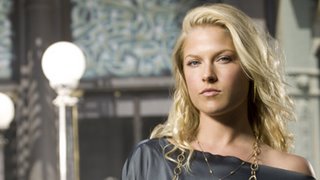 Jekyll/Hyde alter ego with physical prowess and strength) doesn’t even know what her power is, much less how to control it. In addition, she made enough wrong choices in her life that she’s got baggage beyond baggage. Then there’s struggling artist Isaac Mendez (who can see the future), who gets what his power is and wants to use it, but fears he can’t unless he gives into his heroin addiction (which appears to trigger it). These two have a lot
Jekyll/Hyde alter ego with physical prowess and strength) doesn’t even know what her power is, much less how to control it. In addition, she made enough wrong choices in her life that she’s got baggage beyond baggage. Then there’s struggling artist Isaac Mendez (who can see the future), who gets what his power is and wants to use it, but fears he can’t unless he gives into his heroin addiction (which appears to trigger it). These two have a lot  more to work through as they make decisions about what road to walk.
more to work through as they make decisions about what road to walk.The struggles of these characters as they try to figure out what road to walk helps us understand our own struggles to put into practice and understand what Jesus' call to a new life means on our own lives. Jesus tells us that this new life is but a breath away. It exhilerating and full of grand purpose. It is the call to return to what we were made to be, who we were created to be.
That call to a new life—one based on trusting that God is who he says and can do what he says—like those of the comic-verse heroes, is one which involes denying ourselves: “Anyone who intends to come with me has to let me lead,” says Jesus. “You're not in the driver's seat; I am. Don't run from suffering; embrace it. Follow me and I'll show you how. Self-help is no help at all. Self-sacrifice is the way, my way, to saving yourself, your true self” (Mark 8:34-36 The Message).
Like the characters in Heroes, we find this call will change our lives. For some of us, this call is one we seek to avoid. We’ve got too much invested in our current way of life—be it seeking wealth, security or the soothing ordinary—and Jesus’ call will upset that. For some of us, Jesus call is one we find we’ve longed to embrace. We sense the world is not the way it supposed to be. We long for a greater purpose, for a return to what we were meant to be, for a life given up that is actually a life gained. We sense there is a greater power at work in the world, setting it right, and we long to be a part of it.
Either way, however, there are costs. Either way, we choose to walk down one road or the other, one towards life or one that eventually leads to destruction and death (Romans 1). Either way there will be suffering, loss and pain. And the pretense of safety on a middle ground of non-choice is an illusion, because it all erodes eventually.
But, lo and behold, once we embrace the call of Jesus, we find that God’s thrown open the doors to his Kingdom, those wide open spaces full of his oh-so-amazing grace, glory and love (Romans 5). Like the heroes of the comic-verse, we begin to realize that our new call is something we can’t turn away from, that the life in that call far outwieghs the costs, as painful and agonizing as they may be.
Recently, I read an inteview with Randall Wallace (who wrote Braveheart and wrote/directed We were Soliders). The interviewer asked Wallace how Jesus fits into the images of the heroes he writes into his films. Wallace replies: “Jesus is the ultimate hero. His message in the face of unspeakable suffering—spiritual, physical and mental—was, ‘You can try to kill my body, but I will never deny who I am.’”
A show like Heroes gets at this—and that brings God-talk into open spaces. And that’s what keeps me watching.
(To catch up on the series, go here for links to episode summaries. The series also has a corresponding graphic novel. For episode clips, visit YouTube and type “heroes nbc” in the search box.)
(Images: Heroes/NBC) heroesctgy